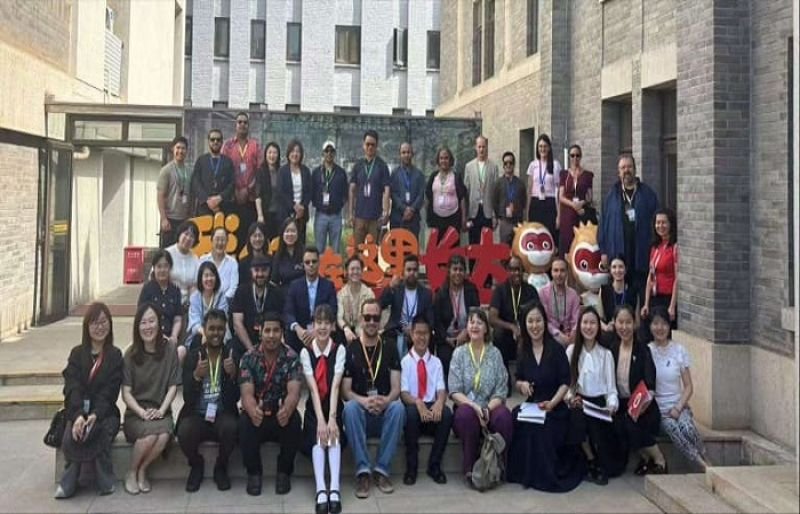In a world increasingly shaped by digital acceleration and global uncertainty, education systems are being asked not merely to inform, but to transform. It was in this context and with an eye toward the foundations of China’s much acclaimed talent development model that I, along with fellow international journalists, found myself walking through the quietly dignified halls of Beijing First Experimental Primary School.
Situated in Xicheng District the heart of a capital that balances 5,000 years of civilization with the pace of modernity this institution is not just a school. It is a living, breathing reflection of China’s pedagogical foresight, a place where the child is not a vessel to be filled, but a force to be awakened.
Founded in 1912, the school carries a legacy older than the Republic itself. But make no mistake this is no relic of the past. Affiliated with the prestigious Beijing Normal University, the school serves as a testbed for advanced educational reform a laboratory where new ideas are not theorized but implemented.
From the very beginning of our visit, it was evident that this institution regards Physical Education not as an afterthought, but as an essential building block of character. In a bold departure from conventional classroom rigidity, the curriculum includes everything from martial arts to sports stair training — a uniquely Chinese innovation that merges physical rigor with traditional discipline. Students don’t just move; they internalize values through motion. Football teaches them camaraderie, martial arts build inner calm, and track-and-field cultivates grit.
But it doesn’t stop at PE. We observed an academic architecture that weaves together STEM, language, morality, music, corporate awareness and even calligraphy forming an ecosystem where art meets logic, and discipline meets curiosity. At one corner, a brass band greeted us with melodies that defied their age. At another, students walked us through a gallery of the school’s history with the poise of young ambassadors.
It was at the screening of Chasing Dreams a moving short video that the school’s mission truly crystallized for me. This was not a film; it was a manifesto. The message was clear: education here is not a race for grades, but a journey toward self-realization.
“We believe in allowing children to think, to observe, and to act,” said Principal Guo Xueli, a woman whose presence exudes a quiet authority. “Our aim is not to create rule followers, but responsible creators.”
Beyond pedagogy, the school recognizes the role of nourishment in learning. A state-sponsored lunch program ensures that no child studies on an empty stomach. Rice, vegetables, protein, yogurt , each meal reflects the state’s investment in a healthier, sharper future generation.
The school’s international partnerships from the UK to Singapore show a China that is both rooted and open, proud of its heritage and eager to share. This isn’t just educational exchange; it is soft diplomacy at its most authentic.
What struck me most wasn’t just the infrastructure or the policies though both are impressive but the ethical tenor of the place. In a time when the global discourse often questions institutional integrity, this school stood as a quiet rebuke: a place where teachers, students, and staff conduct themselves with dignified resolve and moral clarity.
As I left the premises, I couldn’t help but reflect on how China’s education vision begins not in lecture halls or think tanks, but in humble classrooms like these. Here, the groundwork for a future society is laid not only literate, but enlightened; not merely skilled, but whole.
In Beijing First Experimental Primary School, China is not just educating students. It is cultivating stewards of civilization.
#Nurturing #Future #Pillars #Glimpse #Chinas #Human #Centered #Primary #Education #Model



